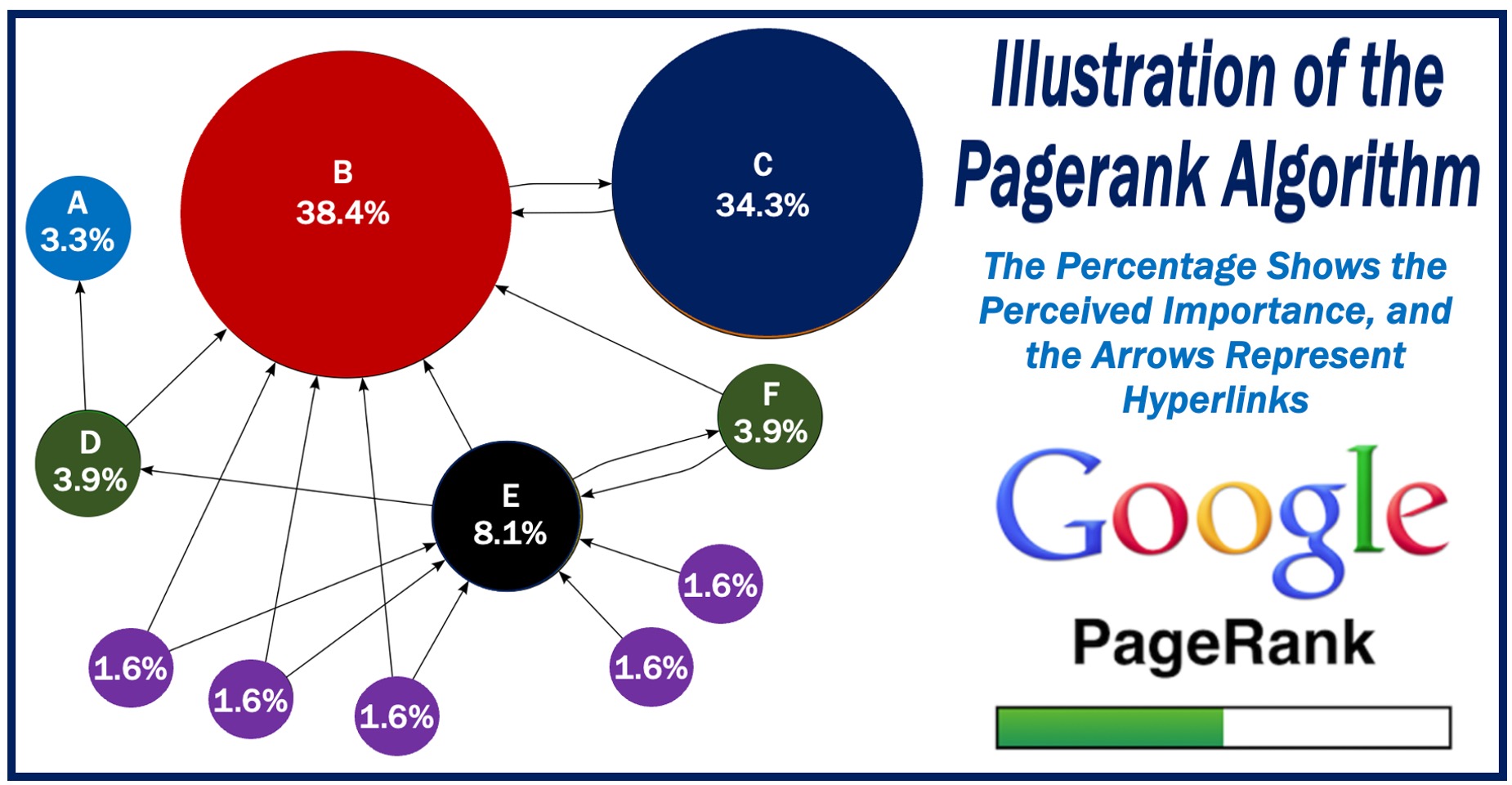PageRank is an algorithm used by Google Search to rank web pages in their search engine results. It depends on the fact that a webpage’s importance can be determined by the number and quality of links leading to it. It simply views links as votes – where a webpage linking to another is seen as an endorsement.
An algorithm is a set of defined, step-by-step instructions used to solve a problem or perform a specific task.
How does PageRank work?
-
Link analysis
PageRank evaluates the quantity and quality of links to a page to determine whether the website is important.
-
Quality over quantity
Every link is not created equal. A link from a website with a high ranking has more influence than multiple links from sites with a lower ranking.
-
Iterative process
The algorithm uses an iterative process to refine page rankings based on how well connected the websites are. In an iterative process, we take a series of small steps or repeats to get better at something or closer to solving a problem. It’s like a video game in which you are on level 4, and are trying to get to level 5 by doing the level again and again until you get through.

Importance
PageRank is super important to SEO. The following points will explain why this is the case:
-
Search engine optimization (SEO)
PageRank was one of the first algorithms to use a website’s backlink profile as an important part of ranking, which significantly contributed to the development of SEO as a strategic field.
-
Quality content
This encourages website owners to create quality content that individuals will naturally want to see.
Evolution
How has PageRank changed throughout the years?
-
Updates and modifications
Over time, Google has updated and modified the PageRank algorithm, integrating it into a more complex ranking system. These updates have involved refining the way PageRank interprets links and their quality, ensuring that the algorithm stays relevant and effective in evaluating website authority.
-
Decreased visibility
As a consequence of its integration into a broader array of search algorithms, Google has phased out the public display of PageRank scores on its toolbar. The removal of this visible score reflects Google’s move towards a more comprehensive and less transparent evaluation system for webpage ranking.
Challenges
There are a lot of challenges and criticisms that come with PageRank, including:
-
Manipulation
In the early years it was very easy to manipulate by artificial link-building schemes.
-
Overemphasis on links
Some people argue that PageRanks focuses too much on how important the links are, which can potentially overlook the quality of the content itself.
Future
“Currently, PageRank is not the only algorithm used by Google to order search results, but it is the first algorithm that was used by the company, and it is the best known.”
Even though it is no longer the only component in Google’s ranking algorithms, PageRank’s impact continues. It established the foundation for increasingly complex algorithms that determine the context, quality, and relevancy of web content. PageRank is here to stay!
Written by Nicolas Perez Diaz
